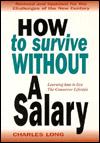1.A person or thing that consumes.
2.Economics. A person or organization that uses a commodity or service.
3.Ecology. An organism, usually an animal, that feeds on plants or other animals.
[Origin: 1375-1425 for earlier sense “squanderer”]
- From dictionary.com : http://dictionary.reference.com/browse/consumer
We are all consumers in the United States. The only way for the economy to grow is to continually increase consumption. This is known as 'growth'. We have all been taught that 'growth' is good.
If your not increasing consumption, then your not helping the economy. If your not helping the economy, then you must be a parasite.
This isn't just what most of us believe, it is how many of us live. And it is insane. We should take a closer look at the origin of the word. The earlier meaning was squanderer. In America today, consumer is equivalent to squanderer.
A good analogy to consumer economics is a disease known as cancer. With cancer, the body's regenerative genes receive a false signal. This false signal causes some cells to grow exponentially. This growth occurs at the expense of healthy cells, wiping them out.
The body feeds on itself. This can not continue indefinitely. If this growth isn't stopped or corrected in time, then the body ceases to function. Self destruction is assured. Death results.
With the consumer economy, economists put out a false signal that 'growth' must be continually increased. It is assumed that resources are infinite and energy is unlimited. And 'growth' must be maintained at all costs, even as the regenerative ability of natural capital is being damaged and destroyed.
Consumer transformation of the planets limited resources is now laying waste to the very biosphere itself. The consumer system feeds on itself, ensuring its own self destruction. The squanderer is king.
Since it isn't being corrected, consumerism continues to overshoot the capacity of natural capital. The system will continue to degrade. Eventually, it will cease to function. In more ways than one, death results. The squanderer is a fool.
Conserver and consumer economics are both capitalist systems. And both recognize the classical economic contribution of Adam Smith. There is a huge difference in perspective between the two.
The Conserver recognizes that the 'invisible hand' isn't invisible. Conserver economics did not freeze Smith's insight as the 'end-all, be-all' answer.
Scientific knowledge has increased since that time. And one of the most important discoveries in science is the laws of thermodynamics. To a Conserver, the second law of thermodynamics is the 'invisible hand'.
Bluntly, the second law states that many processes are not reversible. As an example:
You crack an egg.
You scramble an egg.
Then, you fry it in a pan.
You can't unfry it, unscramble it, and put it back in it's shell. It's irreversible.
Conservers apply the second law to natural capital. It is recognized that resources are finite and that energy is limited. Conservers know that natural capital is regenerative. It is not linear – It is cyclical.
This regenerative capability can be and has been damaged by man. Resulting in a degradation of the entire system. As overshooting its capacity continues, returns from natural capital will continue to decrease at a faster and faster rate. A tipping point will be reached where the system no longer functions.
Conserver Economics is about recognizing the regenerative patterns of natural capital, finding the best pathways to utilize it, and eliminating practices that damage it.
In a nutshell, it is about Stewardship.
You can start a Conserver Life here:

How to Survive without a Salary: Learning to Live the Conserver Lifestyle


